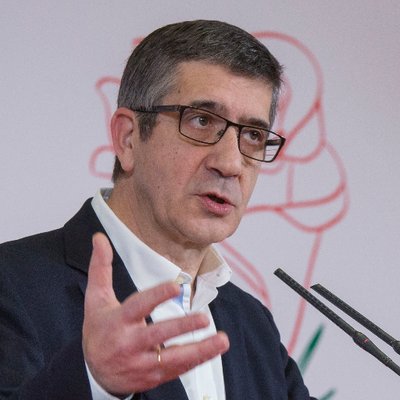For well over two years, even before Pedro Sánchez took the reins of the Spanish Socialist Party (PSOE) in 2014, Susana Díaz has been touted as the party’s leader-in-waiting, even though she has still not declared her intention to compete in the upcoming leadership primary. Patxi López, meanwhile, has thrown his hat into the ring already – too early, some fret.
As premier of the Andalusia region, Díaz is one of the country’s most powerful politicians – possibly Spain’s most powerful woman. And if you accept the commonly held wisdom that she was instrumental in Sánchez’s October ouster, that makes her an even more formidable figure. She enjoys the support of much of the PSOE old guard, including former prime ministers Felipe González and José Luis Rodríguez Zapatero, as well as many regional “barons”.
In Andalusia itself, she is, for the most part, utterly in command. The party’s biggest stronghold, she did well to hold off the Podemos threat there in 2015 and remain in power. Having seen her in action in the highlands of Cádiz (the province with the highest unemployment rate in Spain) during that election campaign, I can vouch for her regal self-assurance on home turf. But for a Socialist, winning elections in Andalusia and governing the region is a bit like coaching Bayern Munich football club: a huge responsibility, of course, but everything is tilted in your favour.
Governing the Basque Country as a Socialist, by contrast, is much more of a challenge. López should know. In 2009, he ended three decades of Basque nationalist rule, to form the unlikeliest of governments in the region – a partnership between the Socialists and the Popular Party (PP). It didn’t last very long, of course, but it wasn’t the first time that Basque politicians had given their counterparts elsewhere in Spain a lesson in realpolitik.
The differences between the two Socialist front-runners don’t end there. When the PSOE was teetering on the brink of self-destruction last autumn, torn apart by its indecision over whether to allow Mariano Rajoy to continue governing or hold out for yet another election, López was firmly in the latter, “No-means-no”, camp. He wore his support for the doomed Sánchez on his sleeve – not a strategically savvy move, but an admirably loyal one.
Díaz, meanwhile, was much more equivocal about whether or not the party should ease Rajoy’s investiture vote, ensuring she was in the limelight while tiptoeing round the word “abstain” as if it might bite her.
All of this may read like something of an attempt to sell López as the man to save his party, and Díaz as the dastardly career politician. Well, that’s not entirely the case. After all, in his brief stint as speaker of Congress last year López was disappointing, particularly when he nearly lost control of a boisterous chamber during Sánchez’s failed investiture. And the perception that he is, as the ever-perceptive Iván Redondo puts it, “the third way of the third way of the third way”, is more reassuring than inspiring for potential voters.
López is no rock star. His vague proposals thus far seem to suggest he broadly understands the need for an overhaul of Spanish Socialism in the context of the new political landscape, but he has neither the fiery divisiveness of Pablo Iglesias nor the Blairesque suavity of Albert Rivera. Instead, his unusual career has given him a lived-in, woody, workmanlike quality – he’s the kind of man from whom you might expect to buy paint or nails in a hardware store rather than see strolling the corridors of power. And having worked his way slowly up from the small-town politics of Portugalete, he finds himself, finally, in the running for the big job in Madrid.
It’s a long way between now and May’s primary contest. In the meantime, not only will Díaz almost certainly stand in López’s way, but Sánchez is still mulling a comeback (some have even wondered if López’s involvement in the primary was a ploy cooked up by the party to deter the unpredictable former leader). If Sánchez runs, he would probably hurt the Basque, given that their platforms would have much in common, likely handing Díaz the leadership.
At 57, López isn’t going to have many more chances like this. But then again, perhaps the Socialist Party has had enough, for the time being, of being led by apparently blessed forty-somethings who seem to parachute out of nowhere before breaking their legs on landing.

0 Comments